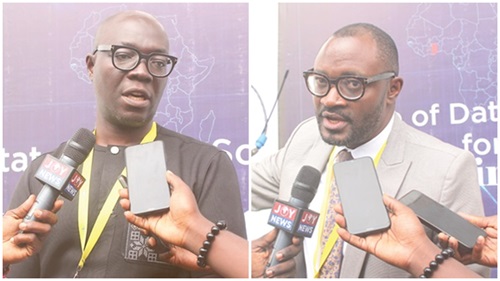Some health experts have made a case for governments on the continent to invest in health data science to improve health outcomes.
They said that with the growing burden of chronic diseases on the continent, tailoring treatments based on individual patient characteristics and genetic profiles had become necessary.
They added that increasing investment in data infrastructure, and addressing skills gaps could help in timely disease prediction and prevention.
It would also accelerate drug discovery and development, identify and test new drugs for infectious diseases.
The two academics — Prof. Kofi A. Amengah, an associate professor of Environmental and Nutritional Epidemiology at the University of Cape Coast (UCC), and a Prof. of Neurology, Mayowa Owolabi, College of Medicine, University of Ibadan, Nigeria, were speaking at a panel discussion in Accra on the state of data science for health in Africa.
Data science is an interdisciplinary field that combines data techniques with healthcare and biomedical knowledge to analyse and interpret large datasets related to health
It also leverages tools from computer science, statistics and domain-specific knowledge to extract insights from clinical trials data, genomic data and other health surveys and data repositories.
Consortium
The panel discussion formed part of the fifth Data Science for Health in Africa (DS-I Africa) consortium meeting which focused on advancing data science and artificial intelligence in health across Africa.
The DS-I Africa initiative is a collaborative effort involving various research institutions, universities and health organisations across the continent.
The initiative aims to enhance the use of data science and artificial intelligence to improve the health sector in African countries.
Participants included researchers, policymakers and industry stakeholders.
It was organised by the African Population and Health Research Centre in collaboration with other partners.
Barriers
Prof. Amengah said significant barriers existed on the continent in areas such as data quality, access and funding.
“These are the elephants in the room that must be addressed for data science to make a meaningful impact on health outcomes,” he said.
Prof. Amengah said that the DS-I project planned to publish 18 manuscripts in prestigious journals, and also produce policy briefs for health ministries across Africa, the World Health Organisation and other stakeholders.
He urged the public to recognise the relevance of data science in their daily lives.
“Understanding how data science can improve health is crucial. It can lead to reduced healthcare costs, which ultimately affects everyone's pocket,” Prof. Amengah added.
Integration
For his part, Prof. Owolabi stressed the need to integrate data science into health policy, particularly in monitoring non-communicable diseases such as stroke, diabetes and obesity.
He described the recent withdrawal of USAID support to Africa as a major challenge for health initiatives across the continent.
Prof. Owolabi urged governments to recognise the economic benefits of investing in data science tools, and that preventing health issues could ultimately save money in acute care costs, adding that “health is wealth”.

